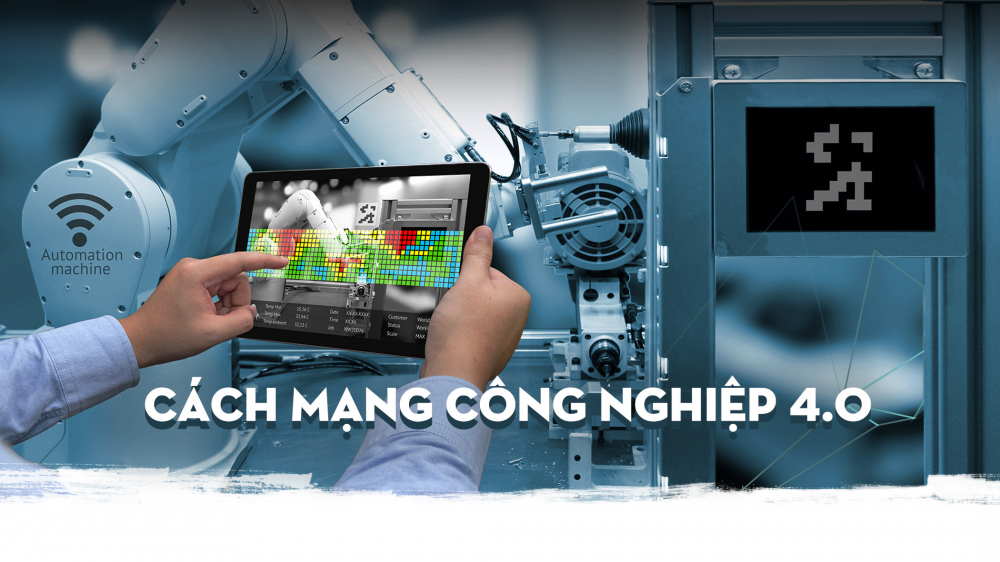1. What is Industry 4.0?
Industry 4.0, also known as the Fourth Industrial Revolution, represents the integration of advanced digital technologies into manufacturing and other industries, bringing about significant transformation. This new era in industrial history leverages digitalization and automation to enhance productivity, flexibility, and efficiency in production and service processes.
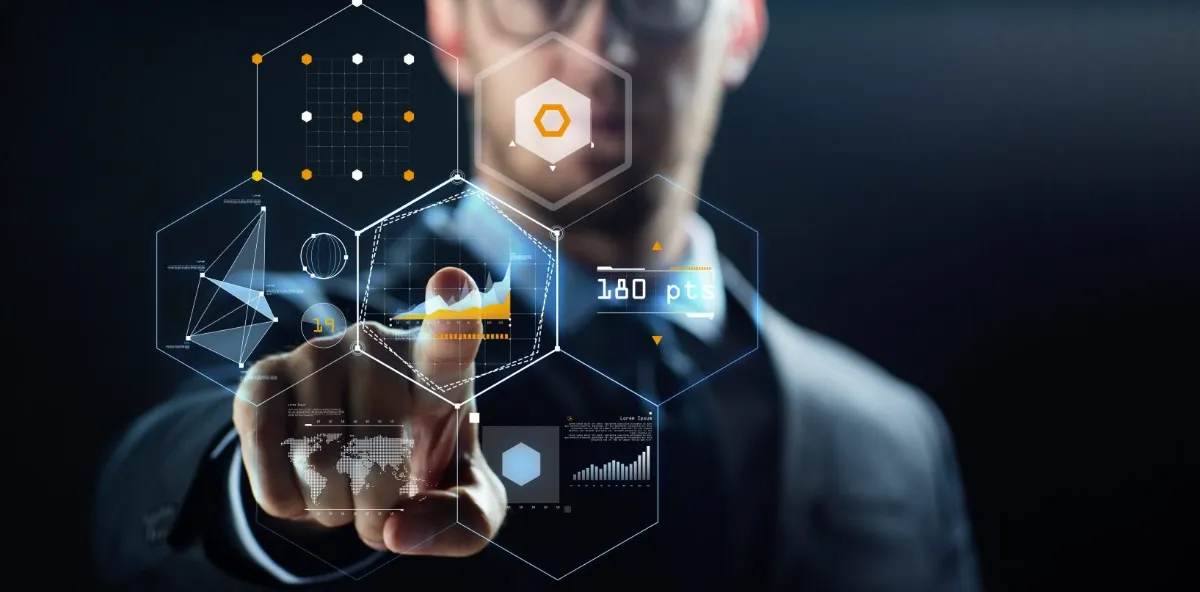
Key technologies in Industry 4.0 include:
Internet of Things (IoT): Connecting devices through the internet to automatically collect and share data.
Artificial Intelligence (AI): Utilizing computer systems to perform intelligent tasks traditionally done by humans.
Automation and Robotics: Implementing automated systems and robots for more efficient task execution.
Machine Learning and Data Analytics: Using machine learning algorithms to analyze data and extract valuable insights.
Cloud Computing: Storing and managing data in the cloud for anytime, anywhere access.
Industry 4.0 offers numerous advantages, such as increased productivity, reduced production costs, improved product and service quality, and enhanced competitiveness. However, it also presents challenges in adapting to new technologies and training the workforce to meet these new demands.
2. The Impact of Industry 4.0 on Manufacturing
Industry 4.0 is profoundly impacting the manufacturing sector, driving significant changes and creating new opportunities, while also presenting challenges that must be addressed. Here’s how Industry 4.0 is reshaping manufacturing:
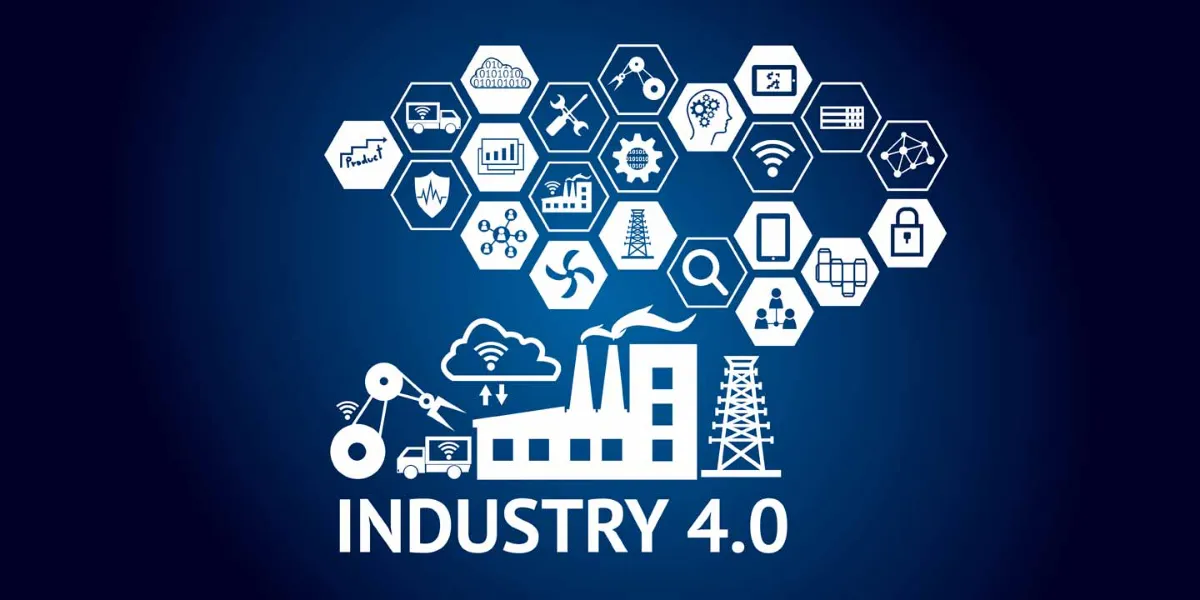
Enhanced Automation and Production Efficiency
Industry 4.0 integrates advanced automation and robotics into production processes, moving beyond simple automation to smart robotics and automated systems. This boosts labor productivity, reduces human error, and optimizes production processes, enhancing overall efficiency and competitiveness.
Smart Connectivity (Internet of Things – IoT)
IoT enables the connection of devices, machines, sensors, and systems within a factory to management systems via the internet. This allows manufacturers to monitor and control production processes remotely, forecast demand, and optimize operations. Data from IoT devices also provides critical insights for process analysis and improvement.
Artificial Intelligence and Machine Learning
The advancement of AI and machine learning opens new doors for applications in manufacturing. AI can be applied to analyze large datasets and optimize production processes, from inventory management to demand forecasting. Additionally, AI can be used to control complex automated systems, improving the accuracy and efficiency of production.
Digital Transformation and Flexible Manufacturing Models
Industry 4.0 fosters the development of flexible manufacturing models and digital transformation. Manufacturers are shifting from mass production to personalized production to meet specific customer demands. Technology enables small-batch production, rapid product changeover, and greater flexibility in responding to market demands, reducing waste and increasing adaptability.
Improved Workplace Safety and Environmental Impact
The adoption of automation and robotics not only enhances efficiency but also reduces the risk of workplace accidents. Smart sensors and monitoring systems help predict and prevent incidents in the production environment, increasing worker safety and minimizing environmental impact.
3. The Development of Forklift Technology in Industry 4.0
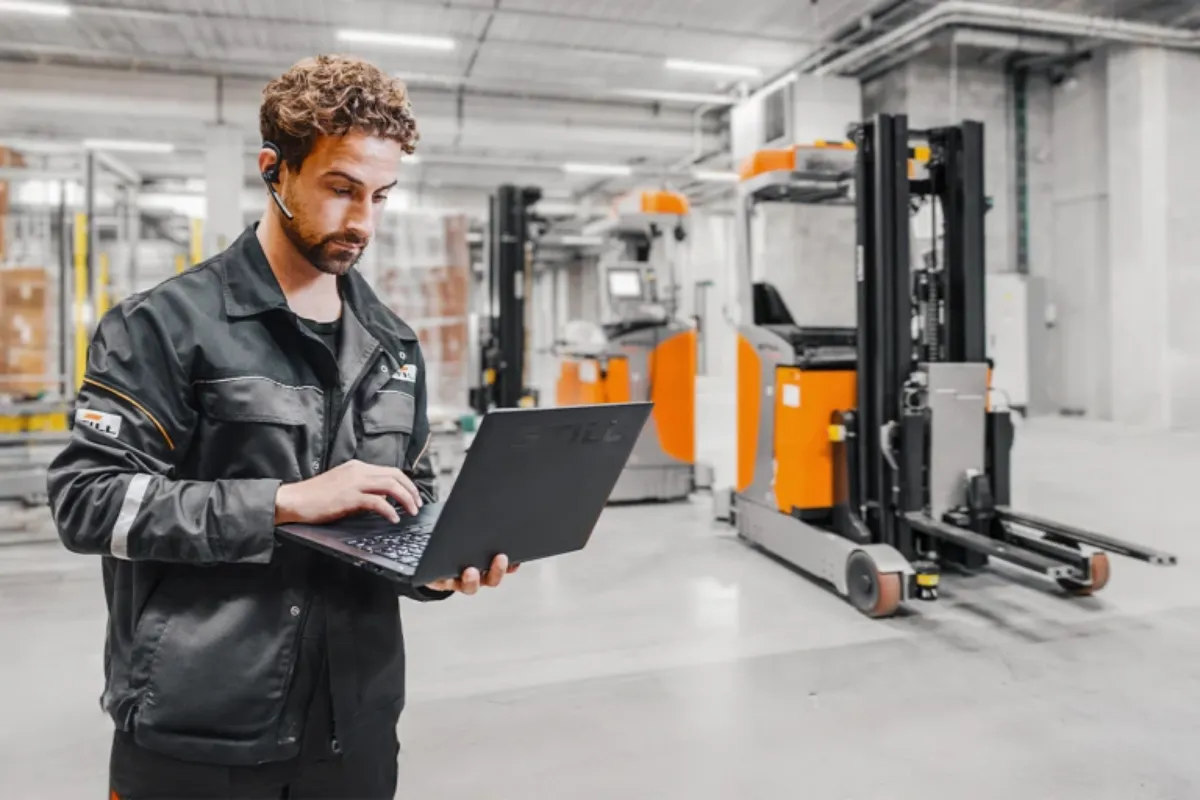
Smart Forklifts
Smart forklifts are a clear application of Industry 4.0 technology in the industrial sector. Equipped with IoT sensors and automated control systems, these forklifts operate more efficiently and make warehouse management smarter and more flexible. They can automatically determine the optimal routes and locations, minimizing wait times and maximizing productivity.
Integration of Artificial Intelligence and Machine Learning
With AI and machine learning, forklift systems are becoming increasingly intelligent in analyzing data and predicting usage needs. They can learn and optimize operations based on data from their environment and previous activities. This improves management and maintenance while enhancing the system’s responsiveness and flexibility
Safer and More Efficient Operations
Advanced automation features and safety technologies make forklifts in modern industrial environments not only more productive but also safer. Remote monitoring and control systems allow operators and warehouse staff to manage forklifts safely and effectively.
4. STILL Forklifts and the Application of Industry 4.0 Technology in the ARIBIC Project
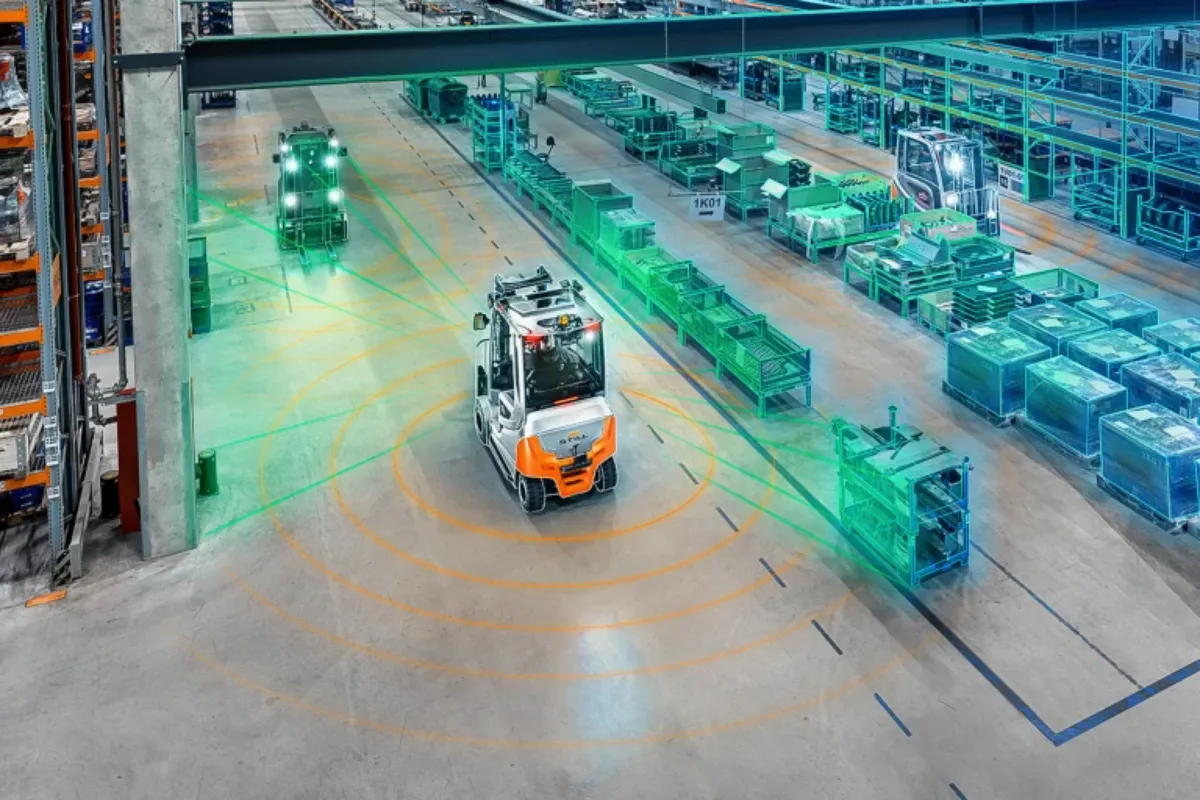
Industry 4.0 has brought significant advancements in warehouse operation and management, particularly through STILL’s ARIBIC (Artificial Intelligence-Based Indoor Mapping) research project. This project leverages new technologies such as IoT, AI, and digital systems to create advanced solutions for warehouse management and operations.
Application of Technology in Production and Operations
The ARIBIC project has developed real-time 3D maps of warehouses and production facilities. Data from sensors and cameras is automatically collected to create a detailed digital representation of the working environment. This allows warehouse management systems to easily identify pallet locations and available space, optimizing storage and operational processes.
Performance and Safety Improvements
The digital 3D map provides warehouse managers with a comprehensive and detailed view of warehouse activities. This helps optimize pallet positioning and accurately manage storage space, reducing search times and maximizing space utilization. Additionally, by automatically detecting infrastructure errors or potential hazards, the ARIBIC project also enhances warehouse safety.
Integration into Real Products
Results from the ARIBIC project will be integrated into STILL’s real products, starting with the OPX iGo neo, an automated order picker. The OPX iGo neo is equipped with advanced sensors and camera technology to support automation and improve efficiency in goods management and warehouse operations.
Product Deployment and Marketing
STILL is implementing new solutions from the ARIBIC project into practice, opening new commercial opportunities in warehouse management and logistics. The presentation at Hannover Messe offers a platform to showcase these new applications and products to the international market.
The ARIBIC project by STILL demonstrates the crucial role of Industry 4.0 in improving management and operations in production and warehouse environments. The application of digital 3D mapping and intelligent automation solutions provides efficiency, safety, and accuracy in resource and process management. These advancements promise to enhance productivity and reduce costs for businesses in the future.
TCID is proud to be the official distributor of STILL forklifts in Vietnam. We are committed to providing the most modern forklifts with the latest technology. If you need to purchase forklifts, contact us today to receive a quote!


